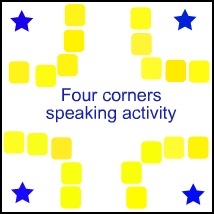A recent survey1 of faculty handouts for research assignments found that most of the handouts provided details for length, citation guide style and how to get assistance from the faculty member. What wasn't included was a critical need for most undergraduate students: context for the research topic.
Read more ›CURRENT ARTICLE • October 17
OTHER RECENT ARTICLES
I’m working on a lecture I’ll be giving at the University of the West Indies and have been thinking about the feedback we give students on their skill development. If you teach something like art or physical therapy or some sport, then skill feedback can’t be avoided, but if you teach something like calculus, history, management or biology where the emphasis is on the content, students don’t always get much feedback on the skills associated with content acquisition in those areas. Our feedback tends to focus on whether they have mastered the material. How they do that is a secondary concern or not an issue we deal with directly.
Read More ›Most students hate cumulative exams, largely because of the sheer volume of course material they need to study and demonstrate proficiency in. But there’s another reason, especially in courses where there are formulas or specific tools that need to be used, and it has to do with how well they truly understand the course material.
Read More ›Do you find that students often struggle to put together effective oral presentations? To help students, try this activity as a way to provide feedback before the big speaking day. The four-corners activity can foster confidence in students while informing them about effective non-verbal/verbal delivery, audience needs, and how to craft effective speaking notes.
Read More ›Most students don’t read their textbooks as well as they should. It’s a topic we’ve dealt with before in this blog and because it’s pervasive and persistent, I keep my eyes open for any ideas, information or resources that instructors might find helpful. I found one this week in an issue of Teaching of Psychology. It’s an instrument developed to solicit student feedback on the textbook.
Read More ›Slow down and remember this: Most things make no difference. Being busy is a form of laziness—lazy thinking and indiscriminate action. … Being selective—doing less—is the path of the productive. Focus on the important few and ignore the rest. … It’s easy to get caught in a flood of minutiae, and the key to not feeling rushed is remembering that lack of time is actually lack of priorities.[1]
Read More ›I’ve long said that professors who want to explore teaching with technology should begin with a social media tool rather than a Learning Management System. Web 2.0 tools are simple to use, invite student collaboration, and are usually less administratively clunky and complex than an LMS.
Read More ›Looking for a way to get your students to collaborate and think critically? Consider group quizzes, a technique that Ida Jones uses in her business law courses at California State University, Fresno.
Read More ›The August 24 post, What Does Your Syllabus Say About You and Your Course?, in which I asked a series of questions designed to encourage revisiting the syllabus in terms of its role in setting course norms and establishing the tone of the course generated some interesting responses. I am always pleased when a post stimulates reaction, including disagreement. This is how we learn and grow as professionals. It also makes blogs worth reading, in my opinion.
Read More ›Whether it’s the professor who creates Twitter backchannels in his courses, the admissions counselor who uses Facebook to engage prospective students, or the librarian who tweets about available resources in the library, higher education professionals have come up with a variety of creative ways to use social media both in and outside of the classroom.
Read More ›






